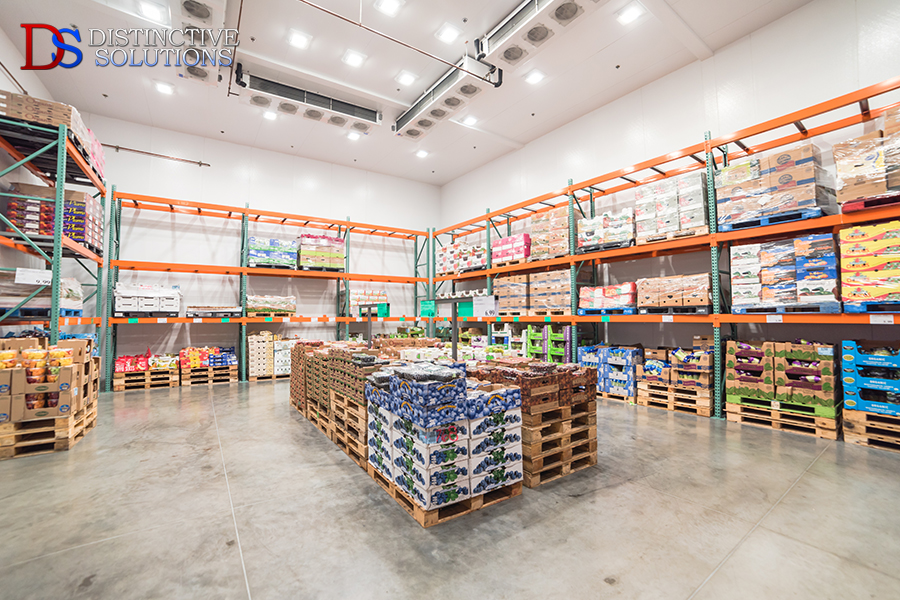The cold chain is a critical aspect of the pharmaceutical supply chain as it ensures the integrity, safety, and efficacy of temperature-sensitive drugs. The proper storage and transportation of these products at a specific temperature range are crucial to prevent spoilage, degradation, and potential harm to patients.
However, managing the cold chain for pharmaceuticals is not without its challenges. The following blog will explore the various difficulties associated with cold chain management for pharmaceuticals and how organizations can ensure sustainable cold chain packaging effectively.
1. Maintaining the Right Temperature Range
One of the biggest challenges with managing the cold chain for pharmaceuticals is maintaining the required temperature range throughout the supply chain. This is especially challenging during transportation as various environmental factors, such as temperature fluctuations, humidity, and exposure to sunlight can affect the quality of the drugs.
To overcome this challenge, companies need to invest in temperature-controlled cold shipping solutions, such as insulated containers, cooling packs, and insulated box liners in Canada to ensure that the temperature inside remains consistent and within the specified range. It is also essential to monitor the temperature throughout the entire journey, from warehouse to delivery, to ensure that any deviations are immediately identified and addressed.
2. Ensuring Compliance with Regulations
The pharmaceutical industry is heavily regulated, and companies must comply with various regulations to ensure that their products are safe and effective. These regulations cover various aspects of the supply chain, including the storage and transportation of temperature-sensitive drugs.
Failure to comply with regulations can result in significant financial penalties, loss of reputation, and even criminal charges. To ensure compliance, companies must invest in systems and processes that monitor and track the movement of their products from the warehouse to delivery and maintain proper documentation to demonstrate compliance.
3. Managing the Complexity of the Supply Chain
The pharmaceutical supply chain is complex, involving multiple stakeholders, including manufacturers, wholesalers, distributors, and healthcare providers. Ensuring that all stakeholders are aware of the requirements of the cold chain and are working together effectively to maintain its integrity is a significant challenge.
To address this challenge, companies must establish clear communication and collaboration between all stakeholders, ensuring that everyone understands their role and responsibilities in maintaining the cold chain. This can be achieved through regular training programs, regular reviews of processes and procedures, and the use of technology to monitor and track the movement of products.
4. Addressing the Impact of Weather Conditions
Weather conditions can significantly impact the cold chain, and companies must be prepared to address this challenge. For example, extreme heat or cold can affect the temperature inside temperature-controlled containers, potentially leading to spoilage or degradation of the products.
To overcome this challenge, companies must invest in temperature-controlled packaging solutions that can withstand extreme weather conditions, such as high-quality insulation, cooling packs, and temperature sensors. They must also monitor weather conditions and plan accordingly, adjusting their delivery schedules and routes as necessary to avoid areas of extreme weather.
5. Coping with Supply Chain Disruptions
Supply chain disruptions, such as natural disasters, equipment failures, and labor strikes, can have a significant impact on the cold chain, potentially leading to spoilage or degradation of products. To minimize the impact of these disruptions, companies must have contingency plans in place, including alternative storage and transportation arrangements, to ensure that the integrity of the cold chain is maintained.
Conclusion
Managing the cold chain for pharmaceuticals is a complex and challenging task, requiring investment in technology, processes, and personnel. However, by addressing these challenges, companies can ensure the safety and efficacy of their temperature-sensitive products, preserving their reputation and maintaining compliance with regulations.
If you’re interested to learn more about sustainable cold chain packaging, get in touch with Distinctive Solutions, Inc. today.
